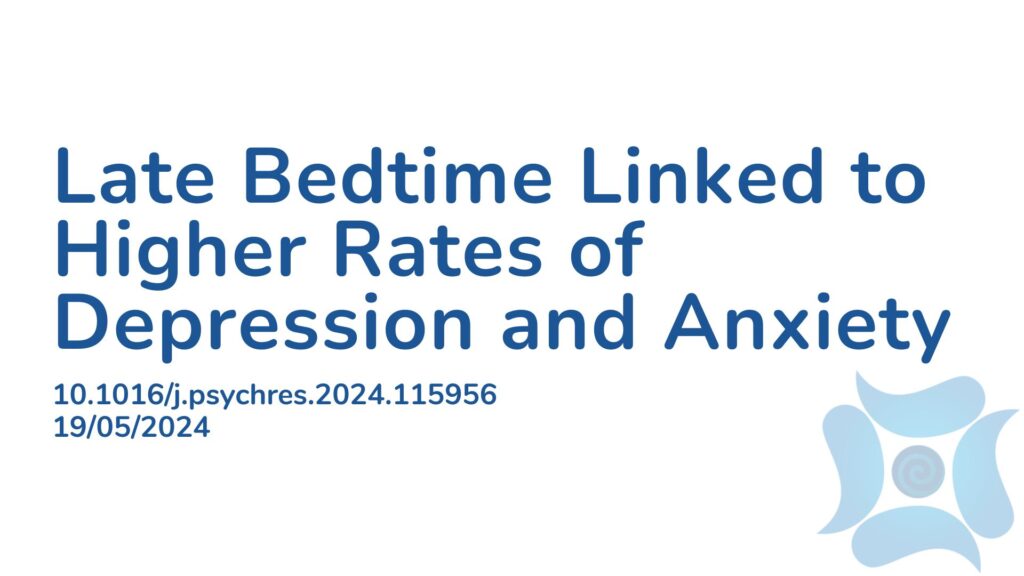Summary:
The body’s main clock, known as the circadian rhythm, is located in the brain’s hypothalamus. This body clock controls our daily behaviors, including sleep patterns. People tend to be “night owls” or “morning larks,” a concept known as chronotype, which is often linked to mental health. Morning chronotypes generally have better mental health, while those with disruptive or later sleep preferences have poorer mental health. This study examined how chronotype and sleep timing impact mental health disorders like depression and Generalized Anxiety Disorder (GAD). The analysis used data from the UK Biobank, focusing on 73,888 middle-aged and older adults. The researchers investigated the effects of chronotype, sleep behavior and timing, and their impact on mental health, including depression and anxiety. Morning types who went to bed late (misaligned) had a higher risk of mental, behavioral, and neurodevelopmental disorders, depression, and anxiety compared to morning types who went to bed early (aligned). In contrast, evening types who went to bed early (misaligned) had a lower risk of depression and showed trends for lower risks of mental, behavioral, and neurodevelopmental disorders, anxiety, and depression compared to evening types who went to bed late (aligned). Further analyses confirmed these findings, showing that chronotype, sleep behavior and timing, and their alignment influence the likelihood of developing new mental health disorders. The researchers advised that healthy individuals should aim to start sleeping before 1 AM, regardless of their chronobiological preferences. This large-scale study has shown that a late bedtime is linked to higher rates of depression and anxiety.
Abstract:
Mental health is independently influenced by the inclination to sleep at specific times (chronotype) and the actual sleep timing (behavior). Chronotype and timing of actual sleep are, however, often misaligned. This study aims to determine how chronotype, sleep timing, and the alignment between the two impact mental health. In a community-dwelling cohort of middle- and older-aged adults (UK Biobank, n = 73,888), we examined the impact of chronotype (questionnaire-based), the timing of behavior (determined with 7-day accelerometry), and the alignment between the two on mental, behavioral, neurodevelopmental disorders (MBN), depression, and anxiety, as assessed through ICD-10 codes. As compared to morning types with early behavior (aligned), morning types with late behavior (misaligned) had an increased risk of having MBN, depression, and anxiety (p’s<0.001). As compared to evening-types with late behavior (aligned), however, evening-types with early behavior (misaligned) had a decreased risk of depression (p < 0.01), with a trend for MBN (p = 0.04) and anxiety (p = 0.05). Longitudinal analyses, in which the likelihood of developing de novo mental health disorders was associated with chronotype, behavioral timing, and alignment between the two, confirmed cross-sectional findings. To age healthily, individuals should start sleeping before 1AM, despite chronobiological preferences.
Article Publication Date: 19/05/2024
DOI: 10.1016/j.psychres.2024.115956



